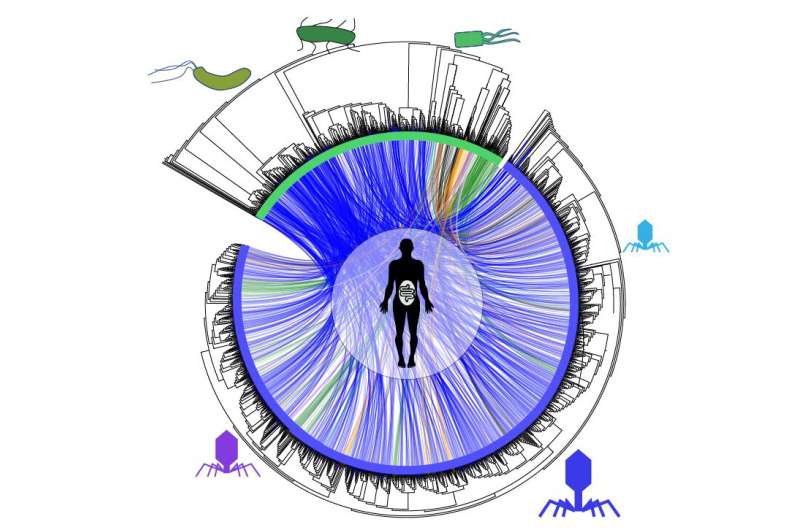Bacteria and viruses: A network of intestinal relationships

The balance of human intestinal microbiota, consisting of hundreds of bacterial species and phages (bacteria viruses), is crucial to good health. A research team, including scientists from the CNRS and the Institut Pasteur, has characterized the phage-bacterial interaction networks of the microbiota in 10 healthy individuals, with unprecedented precision.
Scientists detected several hundred bacterial and phage genomes and identified the thousands of interactions that bind them by quantifying the contacts between the DNA molecules of viruses and their hosts. This method has the advantage of providing exhaustive data from limited biological samples.
The results were then analyzed using algorithms similar to those applied to the study of social media communities. This panorama of relationships between bacteria and phages could be applied to therapies involving intestinal microbiota, such as fecal transplantation and phagotherapy. The approach used in the study, recently published in eLife, could also lead to more precise analyses of terrestrial and marine ecosystems.
More information: Martial Marbouty et al. MetaHiC phage-bacteria infection network reveals active cycling phages of the healthy human gut, eLife (2021).
Journal information: eLife
Provided by CNRS


















